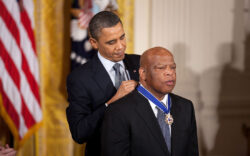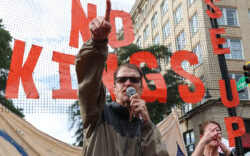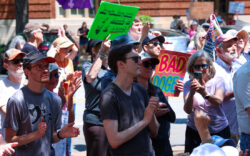America was a war-weary nation 50 years ago when classified documents called the Pentagon Papers were published in The New York Times, The Washington Post and 17 other major newspapers. The 7,000 pages of documents were a secret government study of the decades of war in Vietnam and how this nation became entangled in that faraway conflict.
When the Pentagon Papers were leaked to the media in 1971, the White House administration of President Richard Nixon immediately tried to suppress their publication, but the Supreme Court in a 6-3 decision ruled on June 30, 1971, that the newspapers had a right to publish the documents and that the American public that had committed blood and money to the long-running war had a right to read them. The exposure of the Pentagon Papers underscored the growing American dissent against the war, led to the toppling of the Nixon presidency during the Watergate scandal and gave a major First Amendment victory to embattled American newspapers.
Government officials Daniel Ellsberg and Tony Russo had copied the documents then, spirited them out of the Pentagon in their briefcases, an act that led the Nixon regime to attempt to prosecute and imprison the two men. Their trial fell apart in 1973 when the judge in the case learned that Nixon hirelings had burglarized the office of Ellsberg’s psychiatrist in an effort to steal information that would embarrass the whistleblower. Nixon’s men also mentioned that the judge might be picked as FBI director if Ellsberg and Russo were convicted, but instead, the two were cleared, and it was Richard Nixon who resigned the presidency in disgrace in 1974, while some of his henchmen like Attorney General John Mitchell went to jail.
Russo died at the age of 71 in 2008. He said that helping to expose the Pentagon Papers made him “a committed, full-time radical” and strengthened his antiwar activism. “It would have been un-American not to do it,” he maintained.
Daniel Ellsberg is now 90 years old, a former U.S. Marine and high-level government employee who still works to end war and expose hard truths about political chicanery. He was once called “the most dangerous man in America” by Nixon adviser Henry Kissinger, but in a June 14 interview with democracynow.org, Ellsberg countered that Kissinger’s real fear was that Ellsberg’s documents “would tell the truth about the lies he and his boss were telling” about the war.
In 1997, I attended a birthday party in Washington for Ron Kovic, the Vietnam War veteran turned peace activist who wrote the searing autobiography Born on the Fourth of July. Ellsberg was among the guests at the party, and he said at the time, “We have not yet faced up to the meaning of the Vietnam War.” His words still ring true today, and his actions in 1971 inspired American journalists like Katharine Graham, Ben Bradlee and Ben Bagdikian of The Washington Post. In her autobiography Personal History, Washington Post publisher Graham wrote that printing the Pentagon Papers was “the obligation of a responsible newspaper.” Post editor Bradlee agreed, saying, “The truth is never as dangerous as a lie in the long run.” Longtime Washington Post reporter Bagdikian, who received the Pentagon Papers from Ellsberg and Russo, lived up to his credo, “Never forget that your obligation is to the people.”
Graham died in 2001, followed by Bradlee in 2014 and Bagdikian in 2016. The story of their battle for press freedom was told on film in The Post, a 2017 movie starring Meryl Streep as Graham, Tom Hanks as Bradlee and Bob Odenkirk as Bagdikiian.
Ellsberg is now in the twilight of his years, but his act of resistance against war abroad and political corruption at home was a profile in courage 50 years ago that inspires Americans today. Ellsberg and his journalistic allies in 1971 showed that American author Alan Barth had spoken the truth two decades earlier when he wrote in 1951, “Criticism and dissent are the indispensable antidote to major delusions.”
Like what you just read? Support Flagpole by making a donation today. Every dollar you give helps fund our ongoing mission to provide Athens with quality, independent journalism.










